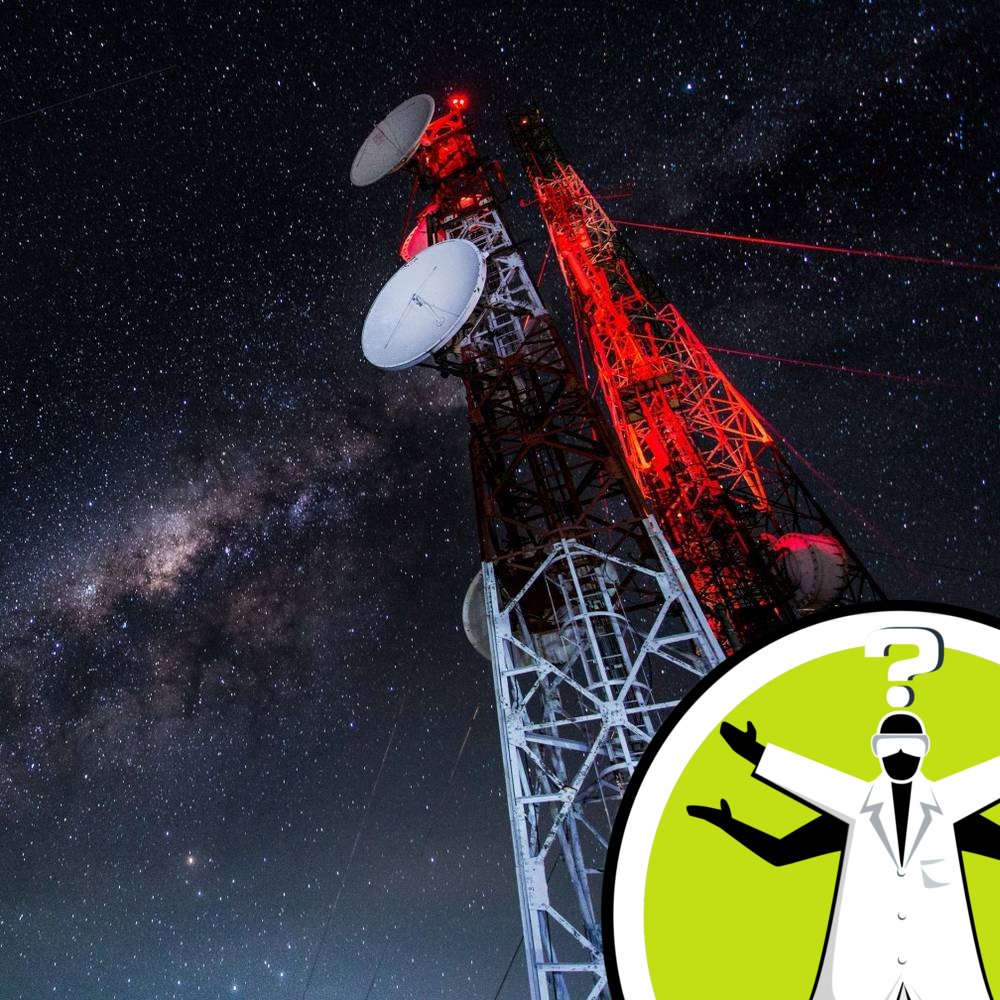
Question of the Week, from the Naked Scientists
Each week we set out to solve one of the world's weirdest, wackiest, funniest and funkiest scientific puzzles. And along with the answer there's a brand new question to think about for next time...
- Update frequency
- every 6 days
- Average duration
- 4 minutes
- Episodes
- 629
- Years Active
- 2008 - 2025

Why does a broken magnets form two new ones?
Why is it when we break a magnet in half, we get two new magnets? Why don't we just get separate north and south poles formed? Liam Messin set out to find the answer with Tim Boyd, a Cambridge underg…
00:04:03 |
Mon 28 Nov 2016

Can light exert a force to move an object?
Why don't you get thrown backwards when you switch on your torch? Kerstin Gopfrich made her way to the Nanophotonics Centre in Cambridge to find out from Dr. Anna Lombardi. The answer to Matt's quest…
00:03:40 |
Sun 23 Oct 2016

How much younger would you be after 50 years on Jupiter?
Could a jaunt to Jupiter be the physics-version of anti-wrinkel cream? This week, Kerstin Gpfrich convinced physicist Dr Stuart Higgins to go on a mission to answer Troy's question... Like this podca…
00:04:19 |
Sat 15 Oct 2016

Does regular hand soap kill germs?
This week, Connie Orbach has been cleaning up, answering Dale's question he sent in on Facebook: does soap really kill off germs?, with the help of Cherly Trundle from Addenbrooke's hospital infectio…
00:03:12 |
Sun 09 Oct 2016

Could nuclear testing cause earthquakes?
To get a handle on this shaky question Connie Orbach called in Dr Alex Copley from Cambridge University's Department of Earth Sciences... Like this podcast? Please help us by supporting the Naked Sci…
00:04:22 |
Sun 25 Sep 2016

Do animals experience the placebo effect?
Joshua asked us whether animals could ever experience the placebo effect. To find out, Laura Brooks spoke to Eleanor Drinkwater, researcher in animal behaviour at the University of York... Like this …
00:03:53 |
Sun 18 Sep 2016

Why does line drying make clothes rough?
Kevin got in touch ask why clothes dried on a washing line can end up feeling rough, crunchy and stiff... To find out, our Laura Brooks contacted Neil Lant at the Fabric and Home Care research and de…
00:03:49 |
Sun 11 Sep 2016

Can we unlearn something that we have already learned?
It is not only learning that can appear to be quite hard; it's unlearning that we struggle with. How do we unlearn? Is there any technique for unlearning things? Claire Armstrong put this to neurosci…
00:03:16 |
Sun 21 Aug 2016

If we slice the earth in half what would it look like from space?
Lucka Bibic spoke to Prof Marian Holness from University of Cambridge to take her through Robert's question... Like this podcast? Please help us by supporting the Naked Scientists
00:04:09 |
Sun 31 Jul 2016

Why does our stomach grumble when we are hungry?
This week, Natasha from Australia wrote in to ask why her stomach grumble when she is hungry. Lucka Bibic enlisted Dr Roshini Raj from Medical Trinity Center in New York to find out what causes the r…
00:04:16 |
Sun 24 Jul 2016

How did the moon get its markings?
Listener Loot got in touch to ask how the moon got its markings. Claire Armstrong looked towards the heavens for the answer and spoke to the Open University's planetary expert Professor David Rothe…
00:04:17 |
Sun 17 Jul 2016

Did the cavemen have names?
Listener Kat got in touch to ask if cavemen really did have names and when did humans start naming each other. Lucka Bibic went in search of cavemen's names with the Professor of Linguistics at MIT, …
00:04:43 |
Sun 10 Jul 2016

How do octopus camouflage?
Listener Android got in touch to ask how octopuses camouflage themselves if they are colour blind. Graihagh Jackson went under the sea to see if the seaweed is always greener on the other side with C…
00:04:00 |
Sun 26 Jun 2016

How do noise cancelling headphones work?
Mark got in touch to find out how noise cancelling headphones work. Can they damage your ears by playing back loud background noise? Fanny Yuen spoke to Trevor Cox to cut the rumble... Like this podc…
00:04:06 |
Sun 05 Jun 2016

How does cooking affect digestion?
Listener Solomon emailed us to find out exactly what role cooking plays in digestion. Emma Sackville met up with Dr. Giles Yeo to break down the question. Like this podcast? Please help us by support…
00:03:45 |
Sun 22 May 2016

Could we recognise a message from space?
This week, Jeff wrote in to ask whether we would be able to recognise and understand an encrypted message from space. Emma Sackville enlisted Dr. Duncan Forgan from the University of St. Andrews to h…
00:03:37 |
Sun 08 May 2016

How fast can an elevator go?
Listener Paul got in touch to ask if it's true that there's almost no restriction in the speed an elevator could ascend when it comes to the human body, but that there was a limiting speed for the de…
00:04:44 |
Sun 24 Apr 2016

Why does spicy food make me hiccup?
Connie Orbach get's to grip with Lebonhang's question and ask Dr Clemency Booth to help... Like this podcast? Please help us by supporting the Naked Scientists
00:04:02 |
Sun 10 Apr 2016

Can two planets share the same orbit?
This week, Jonathan asked us if it's possible for two planets to share the same orbit. Naked Scientist Graihagh Jackson put this to Dr Stuart Higgins from Cambridge University... Like this podcast? P…
00:04:32 |
Mon 04 Apr 2016

Do humans have pheromones?
People can certainly smell whiffy and sometimes this is attractive, other times not so much but is this a feature of pheromones? Lots of species of mammals have them, so what makes us humans any diff…
00:03:49 |
Mon 07 Mar 2016
Disclaimer: The podcast and artwork embedded on this page are the property of Dr Chris Smith. This content is not affiliated with or endorsed by eachpod.com.